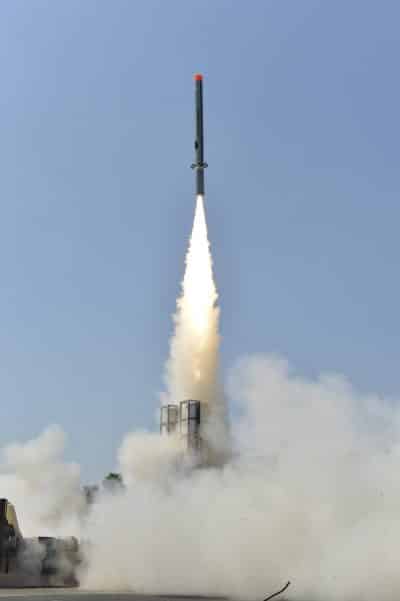India on 10 November successfully test-fired its indigenous subsonic cruise missile Nirbhay, which failed its last test in December 2015, an official statement said.

In a major achievement, the first indigenously-designed and developed Long Range Sub-Sonic Cruise Missile which can be deployed from multiple platforms, was successfully test fired from the Integrated Test Range in Chandipur in Odisha.
BIG: After 2 Failures, India’s 1,000-km Range NIRBHAY Nuclear Capable Cruise Missile Successfully Tested. https://t.co/DUrnIxkuYB pic.twitter.com/xMrMKflmC5
— Shiv Aroor (@ShivAroor) November 7, 2017
The test took place after the error, that led to the failure of its fourth trial in December last year, were rectified, said the statement.
The missile has the capability to loiter and cruise at 0.7 Mach, at altitudes as low as 100 metres. The flight test achieved all the mission objectives completely from lift-off till the final splash, boosting the confidence of all scientists associated with the trial, it added.
The missile took-off in the programmed manner and all critical operations including launch phase, booster deployment, engine start, wing deployment and other operational parameters demonstrated through autonomous way point navigation.
The guidance, control and navigation system of the missile is configured around the indigenously designed Ring Laser Gyroscope nd MEMS based Inertial Navigation System along with GPS system.
“The missile majestically cruised for a total time duration of 50 minutes, achieving the range of 647 km. The missile was tracked with the help of ground based radars and other parameters were monitored by indigenous telemetry stations developed by DRDO,” the statement said.
Defence Minister Nirmala Sitharaman hailed the success of DRDO scientists and complimented them for this inspired achievement. She was optimistic that this successful trial would take India to the select league of nations for possessing this complex technology and sub-sonic cruise missile capability.
DRDO Chairman S. Christopher, DG, Aero, C.P. Ramanarayanan, along with other senior DRDO scientists and user representatives from Army witnessed the momentous launch and congratulated the team Nirbhay for making DRDO proud for the long awaited achievement.
Nirbhay’s December 2016 trial was aborted half-way as the missile changed its targeted course. It had to be destroyed within minutes of taking off amid a threat that the missile could hit land.
The 750-1,000 km-long range missile’s first test on March 12, 2013 failed as it fell after 20 minutes of flight. The second on October 17, 2014 was, however, successful.
The third test on October 16, 2015 saw the missile nose-dive after covering 128 km in the Bay of Bengal.
With the capability to strike deep into enemy territory, Nirbhay has been designed and developed by the DRDO at its aeronautics R&D laboratory Aeronautical Development Establishment based in Bengaluru.
The cruise missile is powered by a solid rocket motor booster developed by the Advanced Systems Laboratory and is guided by a highly advanced inertial navigation system indigenously developed by Research Centre Imarat.
Nirbhay is able to pick out a target among multiple targets and attack it, can go around a target and re-engage it. It can fly at different altitudes ranging from 500 metres to 4 km above ground and can fly at tree level to avoid detection by radar.
-IANS




